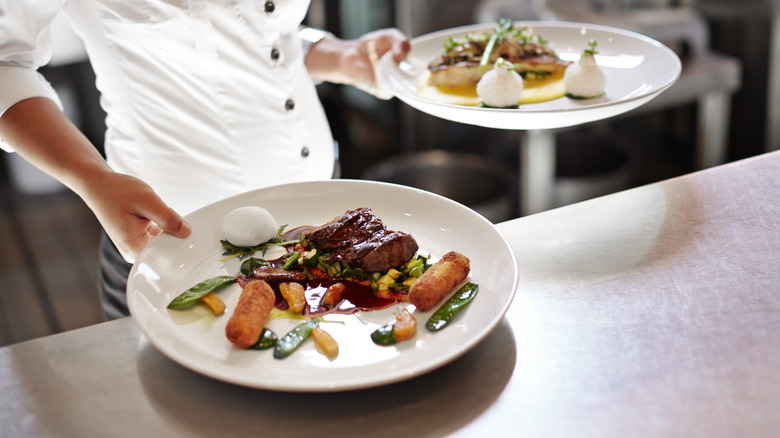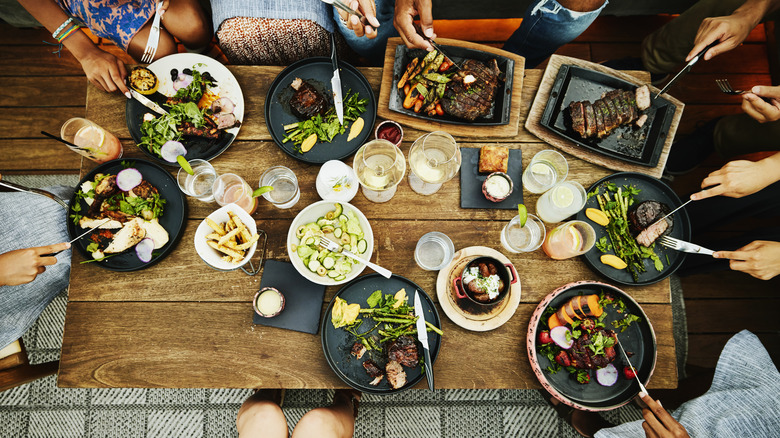How To Tell If A Restaurant Special Is Worth Ordering
Many restaurant-goers have a habit of ignoring the specials. Often, it's because diners familiar with a menu already know what they like and like what they know. However, it's also a common myth that restaurant specials are dishes made from old or even nearly expired food that the establishment is hoping to sell before having to throw it out. Usually, this isn't true, but a special may not look exactly like what's on the regular menu either. For instance, a limited-time dish might be a restaurant's way of trialing a potential permanent item, but it's tricky to know when to try one yourself.
For help with spotting a special worth ordering, we spoke exclusively with Taylor Hester, the Executive Chef of Roman restaurant Roscioli NYC and a participant in City Harvest's BID 2024: CHTV! event on October 29, 2024. (Every year, the New York City nonprofit hosts a sampling of restaurants around the city to raise funds to feed people experiencing food insecurity.) According to Hester, uncommon dishes should have uncommon ingredients: "A restaurant special should be driven by something like seasonality or a product that is limited because of a small window or availability or demand." If a restaurant uses rare or seasonal ingredients in limited-time specials, it's a good sign that the ingredients are fresh and that you're ordering a unique dinner you genuinely couldn't get during other parts of the year.
Uncommon or seasonal ingredients signal a good special
As you might have guessed, fresh produce often tastes better than frozen produce. Frozen foods have most of their flavor preserved when they're stored properly, but over time, freezer burn can occur and the cell walls in the food begin to break down, compromising flavor. Lots of restaurants do serve frozen foods, especially after supply chain shortages in 2020, so keep an eye out for specials that take advantage of seasonal ingredients, which are more likely to be fresh. For example, during fall, fruits in season include pears and cranberries; autumn or winter vegetables include cauliflower, Brussels sprouts, ginger, and gourds like pumpkins or squash. In the spring or summer, meanwhile, look for fresh tomatoes, leafy greens, and strawberries, which keep their original texture better than frozen (or canned) strawberries.
Restaurants might also advertise difficult-to-obtain ingredients in their specials, which can include ones affected by shortages. For example, sriracha is a hard hot sauce to find in 2024 because of problems with the supplier's chili peppers. Every now and then, even a viral recipe on social media can impact the market if it becomes popular enough. In 2021, baked pasta with feta cheese became so big on TikTok that cheese suppliers ran low on feta. If a restaurant gets its hands on something rare, that's a good reason to try the special.

